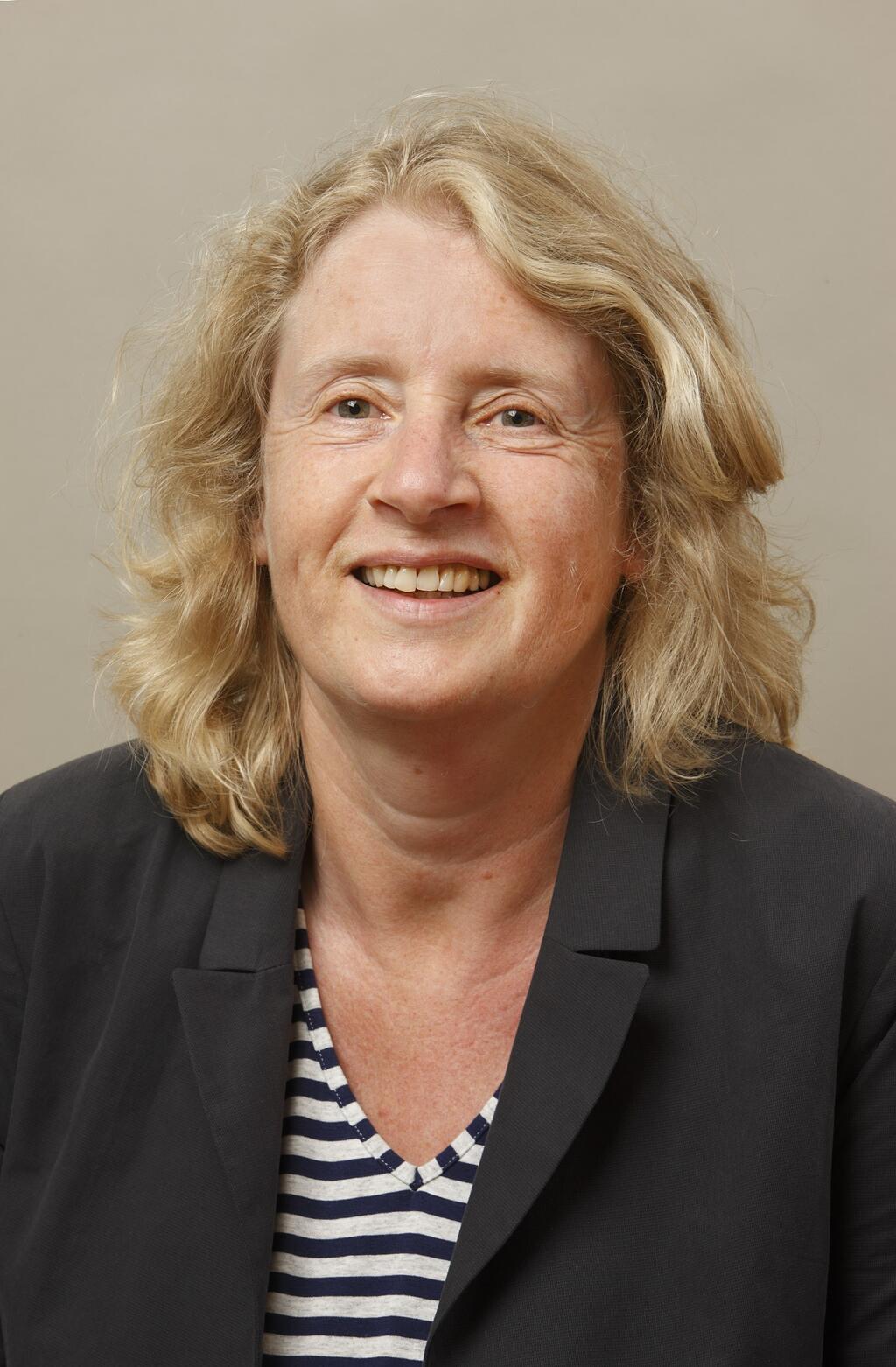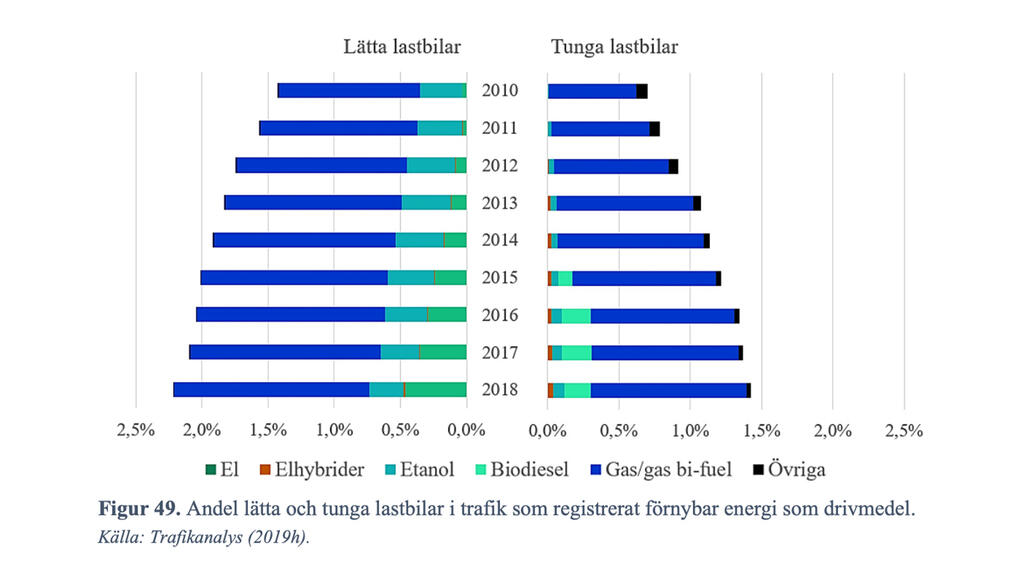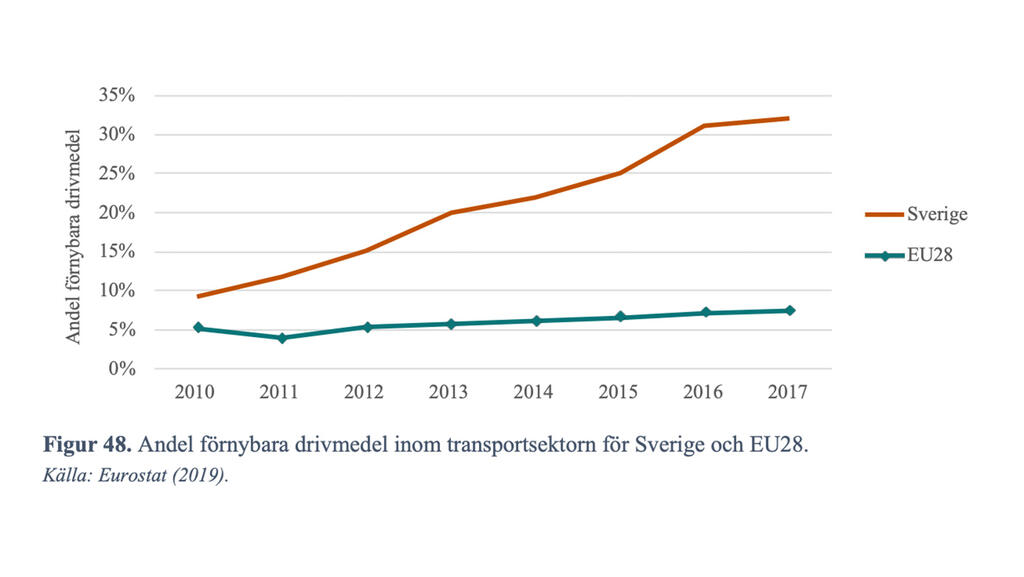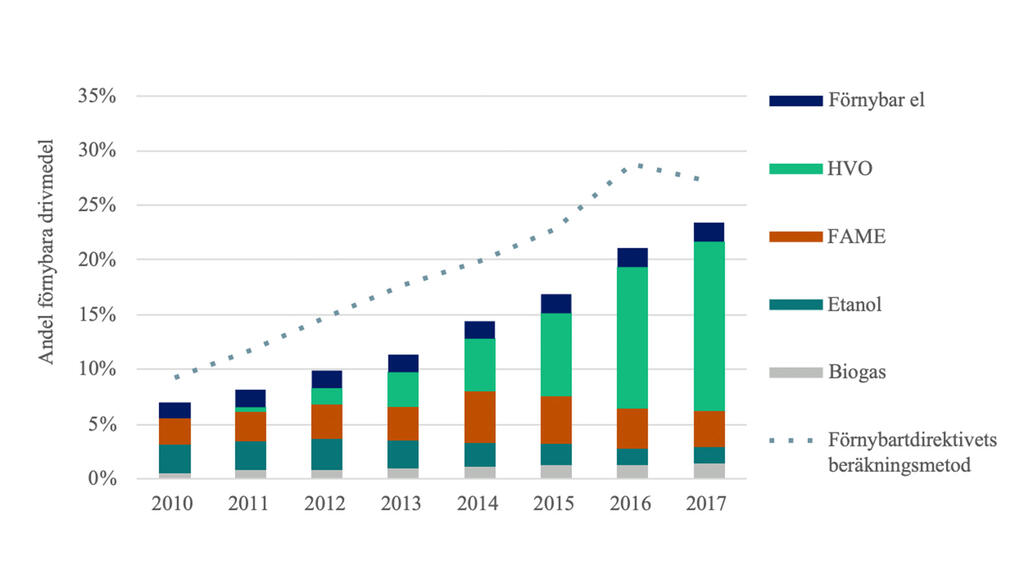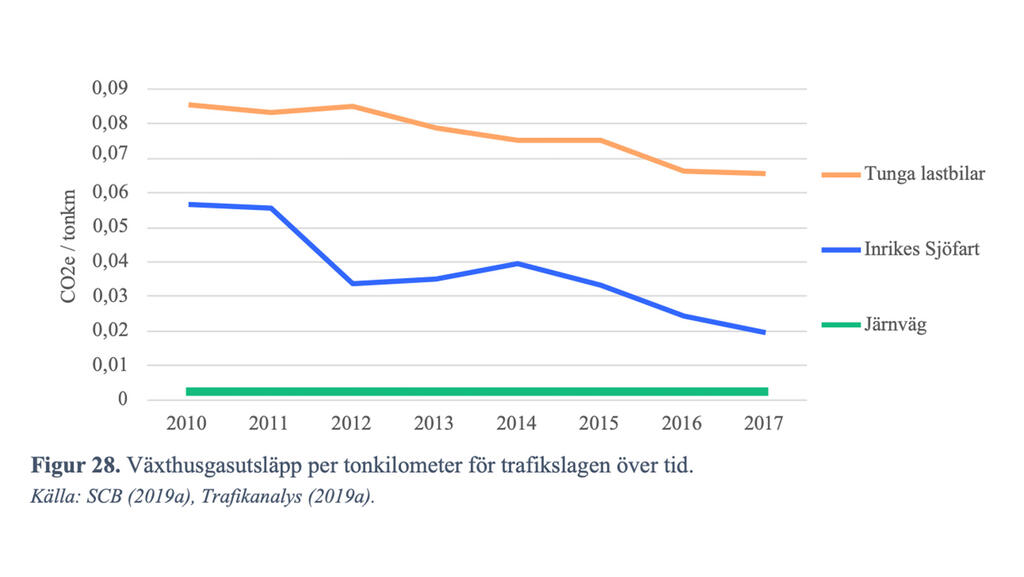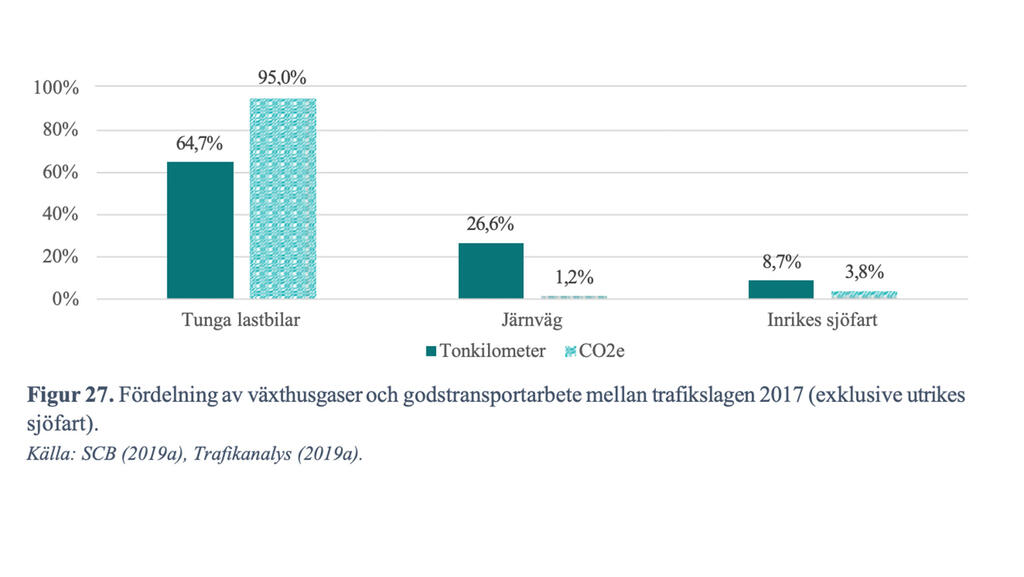A great deal is required in order to achieve Sweden's climate goals
Cargo transport's transition is a key to achieving climate goals. The goal by 2030 is a reduction of 70% of CO2 emissions from 2010 with respect to transport within Sweden and in a subsequent step, all of Sweden should be fossil-free by 2045. The comprehensive follow-up for the cargo transport sector by Triple F demonstrates how the concerned parties have responded to the climate challenge thus far and provides a framework within which the areas and how Triple F partners and external parties should work towards the defined goals.

Sweden's climate goals entail great challenges for the concerned parties in the cargo transport sector, and, as a coordinating party, Triple F sees the programme's role in this process as significant. The follow-up report in 2019 and the updates in the coming years will function as a common source of data that can be used to identify needs for research and development.
"It is important to have a common basis that ties the projects together within Triple F, with general information, but particularly with statistics," explains Inge Vierth, (VTI) Policy research leader; Triple F is one of the authors of the report that was drafted together with Johanna Takman, VTI and Lina Trosvik, VTI and Patrik Klintbom (RISE) Technology research leader, Triple F and Johannes Hüffmeier (RISE).
Focus on a reduction of CO2 emissions
The 2019 follow-up report relates to the shorter time perspective: ten years in the past and ten years in the future, and a reduction of CO2 emissions by 70%. However, it is important to avoid fixating on short-term solutions that can hamper the follow-up of the goal of a fossil-free Sweden by 2045. Therefore, the long-term perspective will be included in the report in the future.
Inge describes that the focus is primarily on studying development within Triple F's three challenges:
- Transition to more energy-efficient and fossil-free modes of transportation
- A Society with Greater Transport Efficiency
- Increased share of renewable fuels
Inge explains further that when they compiled the report they saw that the climate policy council had developed an interactive follow-up tool for a similar purpose. The climate policy council's tool Panorama has, however, a wider perspective and initially covers the entire transport sector (not only cargo transport) and even other sectors will be included later on. The plan is that Triple F will develop an interactive tool that is similar to Panorama, but at a later stage.
"The fact both Triple F and the climate policy council have developed data platforms with a similar focus demonstrates the importance that there are common indicators to relate to in the work to achieve the defined climate goals," explains Inge.
Triple F's follow-up reports will not merely be a way of following up within which areas projects or organisations have contributed to achieving climate goals, they will also show the context within which that is not the case.
"An important aspect in connection with the follow-up is the opportunity to study which effects the means of control have had on CO2 emissions from cargo transport on a national or international level."
Means of control - the way forward
"Several authorities and researchers stress that we have not had much success with the current incentives. This means that there is a need for more or entirely different means of control and measures in order to achieve the Swedish climate goals. It is also important to see what other countries are doing, what has worked well and worked less well and learn from that," says Inge and continues, explaining that the interplay between means of control and different areas is important. Another important aspect is the competition for renewable fuels.
"With respect to biofuel, for example, the question is how much fuel will be available in Sweden and internationally and in which sectors it will have the greatest benefit. For example, will it be used for lorries or maritime travel? Or perhaps planes? It is important that we determine where the renewable fuels are best used. Will we focus on batteries for lorries and then need electrified roads? There are numerous questions and it may be essential that an overall means of control guides things in the right direction," continues Inge.
In this public debate, a great deal revolves around CO2 emissions, which is also a focus for Triple F. However, there are additional areas that must be taken into consideration. For example, it may be important to analyse whether measures (e.g. the transition from roads to maritime travel) will lead to increased emissions of nitrogen, sulphur and particles that are negative for the environment.
"Noise and traffic safety must also be factored in. In this context, it is important to ensure that the means of control that should achieve climate goals do not negatively impact any of the other other aspects," stresses Inge.
In the next stage
Triple F will study how means of control, both those currently in place and in the future can complement each other rather than work against each other.
"We also want to exemplify which means of control and measures have been implemented and which effects they have had on the amount of CO2 emissions in Sweden. An example is what climate effects the approval of heavier lorries to a max. load of 64 tonnes instead of 60 tons has had?"
Inge continues, explaining how Ikea, for example, has worked to improve the efficiency of its transport by re-examining product design (stackable decanters, etc.) and packaging (package candles more efficiently in order to be able to utilise vehicles and ships more efficiently). It would be interesting to provide a few examples of measures that organisations have implemented that have led to a major reduction of CO2 emissions in the 2020 report.
Have you and/or your organisation had any experiences that you would like to share?
If you are interested in sharing your or your organisation's experiences, contact Inge, at your earlier convenience. Triple F is interested in innovative projects that have resulted in reduced CO2 emissions.
For more information, contact:
Inge Vierth
e-mail: inge.vierth@vti.se
